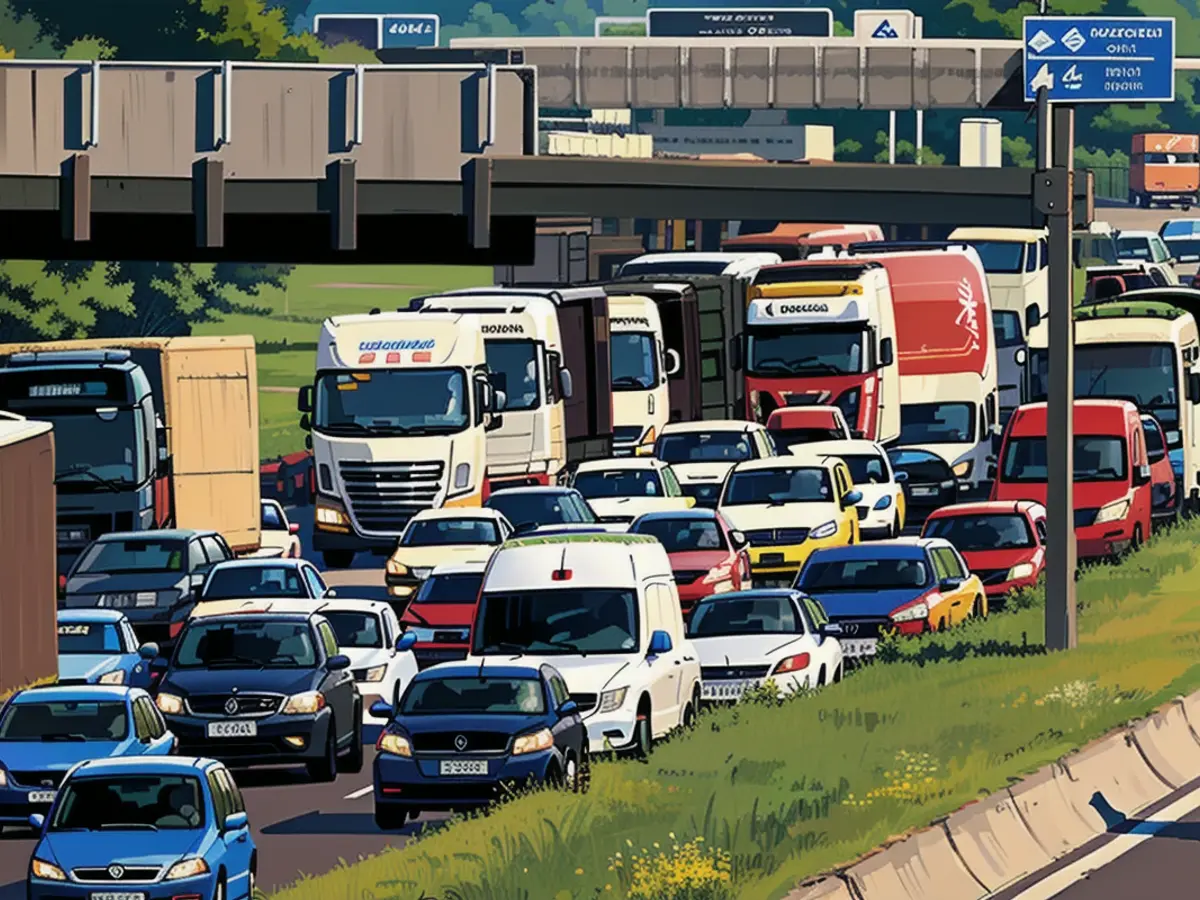Delaying traffic turnarounds may result in costly consequences.
A research published reveals that if policymakers don't get more aggressive in dealing with climate-neutral transportation, the associated expenses will drastically increase. Conversely, acting speedily could yield tremendous savings.
Agora Verkehrswende, a non-profit organization providing scientific policy advice, conducted the study. They declare that inaction by politicians could result in either financial or environmental repercussions. According to the analysis, by adopting a more progressive approach to climate policies for the transport sector, the German government might even save money compared to a "business as usual" approach.
The researchers evaluated three possible situations, with expanding climate shield measures in transport. The current transport turnaround policy, featuring initiatives that haven't yet been passed, functioned as a reference point.
In this baseline scenario, carbon emissions from transportation fall to 111 million tons by 2030 and approximately 15 million tons by 2045. This means that the transport sector's climate objectives for 2030 and zero emissions goal for 2045 would be both unmet.
The Study Presents Several Situations
A second and third scenario are based on the assumption that governments will institute more ambitious climate preservation policies from 2025 and 2030. These scenarios would see a climate-neutral transport system accomplished by 2045. However, the "Turnaround 2030" variant entails significantly higher expenses compared to both the reference scenario and the "Turnaround 2025" scenario. This is due to the need for more intensive efforts made in less time to achieve climate neutrality.
All three scenarios maintain a consistent level of mobility, but allocate it differently between various transportation modes. In the "Turnaround 2025" and "Turnaround 2030" variants, public transport (bus, train, bicycle, and pedestrian travel) becomes more significant over time, compared to private motorized transport. These scenarios don't prioritize reducing car traffic, but rather converting combustion engines to electric engines.
Electric vehicles make up a greater percentage of the transportation fleet in the "Turnaround 2025" scenario compared to the reference scenario, while the "Turnaround 2030" scenario has the highest proportion of electric cars. Nevertheless, both paths indicate a substantial reduction in motorized private transportation.
Dramatic Costs on Horizon
If the German government maintains its current approach, it would have to invest approximately €9.7 trillion in the transport transition by 2045, which includes indirect costs from climate harm due to increased CO2 emissions. Given this astounding sum, the government still wouldn't achieve its goals for the transport sector's climate targets. If the government promptly took action by 2025 to achieve climate neutrality in transit by 2045, it would save around €60 billion.
Redirecting towards a more climate-friendly approach after 2030 would be costlier, albeit with the target of an emission-free transport sector still being attainable by then. But this would need more and especially more expensive measures on the part of the government. Compared to the no-change scenario, the German government would have to shell out over €500 billion more for investments.
"Should we proceed swiftly and decisively, the transport sector can become climate-neutral by 2045," said Wiebke Zimmer, Deputy Director of Agora Verkehrswende. "This can be achieved without additional costs before 2045." Initially, higher investments are needed, but overall spending doesn't increase. "Above all, we need more political determination," stated Zimmer.
Image: https://cdn.pixabay.com/photo/2016/11/14/16/22/politics-1835457/
Citation: https://www.agora-verkehrswende.de/en/publications/if-we-act-quickly-and-decisively-germanys-transport-sector-can-reach-climate-neutrality-by-2045
Read also:
- Year of climate records: extreme is the new normal
- Precautionary arrests show Islamist terror threat
- UN vote urges Israel to ceasefire
- SPD rules out budget resolution before the end of the year
- Given the study conducted by Agora Verkehrswende, policymakers need to consider strengthening climate protection measures in transport policy to curb the escalating costs associated with climate change.
- The impact of climate policy on climate protection is evident; for instance, by adopting more aggressive policies, the German government could save money in the transport sector compared to maintaining the status quo, as suggested in the study.
Source: www.ntv.de








